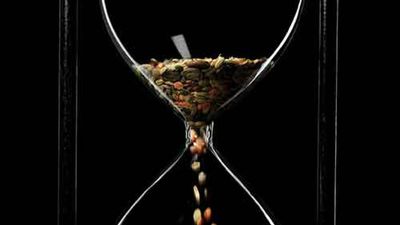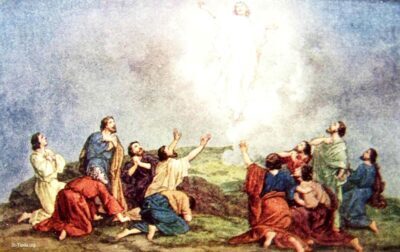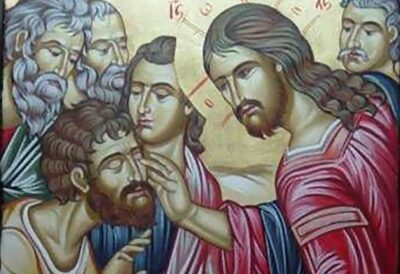June 4, 2023
|by N W
|
0 Comments
|
Faith, Father Nixon, Holy Spirit, Trinity
The Solemnity of the Most Holy Trinity
June 4, 2023 — Year A
Readings: Ex 34:4b-6, 8-9 / Dn 3: 52-56 / 2 Cor 13:11-13 / Jn 3:16-18
by Rev. Nixon Negparanon, Pastor
There was once a story of a pope who wanted a portrait of God, so he called in all of the artisans of Rome. He told them that whoever could perfectly portray God on canvas would receive a papal award. So the artisans gathered in the Vatican work room, and each one started to paint a portrait of God. They worked on their masterpieces for several months, except for one painter named Giuseppe. Being old, Giuseppe would fall asleep in front of his canvas while thinking about how he would paint God.
Finally, the time came when the pope would judge their paintings. His Holiness toured the large gallery and looked at each painting beside its artist. God was represented in many ways: an old loving man; a shepherd; a king on a throne; a crucified; a dove; and in several other ways. Yet to the surprise of all, the pope was not satisfied with any of the portraits.
When the pope glanced into the corner, he heard Giuseppe snoring in front of his canvas. He went to the old painter and saw the empty canvas in front of him.
“This is it!” the pope exclaimed. “This is the perfect portrayal of God.” The cardinals, bishops, and all the artisans gathered around His Holiness, holding the canvas with nothing painted on it.
“Your Holiness, the canvas is empty. It has no portrait of God,” the cardinals told him.
“Exactly,” the pope said. “That is what God looks like – indescribable.”
A joke, and at the same time, true.
Brothers and sisters, today is Trinity Sunday. Our Catholic faith teaches us that there is only one God, but three divine persons: God the Father, God the Son, and God the Holy Spirit, or Three in One.
I remember a friend of mine who encountered an atheist who said that we Catholics have so many gods: God the Father, God the Son, and God the Holy Spirit. We express it in the Sign of the Cross. This atheist continued to say that the Bible teaches us to worship God alone, and no other god.
My friend told the atheist that in our Bible, the mathematics formula that we can find is not addition, but multiplication. And he said, (and he quoted from Genesis, but he changed some words) “Go out into the world and multiply.” He did not say, “Go out into the world and minus. So,” my friend continued, “1 x 1 x 1 = 1. That is why we have only one God, but three divine persons.”
Anyway, this is not the way to explain the mystery of the Blessed Trinity. But we can use this way to explain the mystery in a simple and direct way. The name Trinity means “three in one.” “Three in one” because there are three divine persons: Father, Son, and Holy Spirit. They are not three gods, but one God.
But none of the readings we heard today talked directly about the Trinity or used the word, Trinity. Yet the Most Holy Trinity, which is God the Father, God the Son, and God the Holy Spirit, according to the Catechism of the Catholic Church, is the central mystery of the Christian faith and life. It is the mystery of God. It is, therefore, the source of all other mysteries of faith.
St. Paul came closest in talking about the Trinity. What he said sounds familiar to all of us; we just heard it in the Second Reading. He speaks of the grace of Jesus Christ and the love of God, and the fellowship of the Holy Spirit. (1 Corinthians 13:13) This is the greeting of the priest at the beginning of the Mass, after making the Sign of the Cross.
Maybe at this time we are still a little bit confused, and we wonder: Are we worshipping three gods or one God? Let us bear in mind this thought from St. Augustine: Trinity is not a problem to be solved, but a mystery to be lived. I will try to explain this on two levels: doctrinal and practical.
On the doctrinal level, the Catechism of the Catholic Church, Paragraph numbers 253 – 255, summarizes this doctrine in three parts.
First: That the Trinity is One. We do not confess three Gods, but one God in three divine persons, the “consubstantial Trinity.” The divine persons do not share the one divinity among themselves but each of them is God whole and entire: “The Father is that which the Son is, the Son that which the Father is, the Father and the Son that which the Holy Spirit is, by nature, one God.”
Second: The divine persons are really distinct from one another. “God is one but not solitary.” “Father,” “Son,” “Holy Spirit” are not simply names designating modalities of the divine being, for they are really distinct from one another: “He is not the Father who is the Son, nor is the Son He who is the Father, nor is the Holy Spirit He who is the Father or the Son.” They are distinct from one another in their relations of origin: “It is the Father who generates, the Son who is begotten, and the Holy Spirit who proceeds.”
Third: The divine persons are relative to one another. Because it does not divide the divine unity, the real distinction of the persons from one another resides solely in the relationships which relate them to one another: “In the relational names of the persons, the Father is related to the Son, the Son to the Father, and the Holy Spirit to both. While they are called three persons in view of their relations, we believe in one nature or substance.” “Because of that unity the Father is wholly in the Son and wholly in the Holy Spirit; the Son is wholly in the Father and wholly in the Holy Spirit; the Holy Spirit is wholly in the Father and wholly in the Son.”
So now on the practical level, how does the mystery fit into our day-to-day life as Christians? To ponder this mystery more deeply, what comes out is community. If there are three persons in one God, then there has to be a community; a unity among the three.
Brothers and sisters, we are made in the image and likeness of God. That being so, we ought to mirror our various communities; for example, families, religious congregations, offices, workplaces, and others in the image of the Holy Trinity. These communities should bear the fruit of unity: understanding, love, peace, and harmony. It is good that these will be the fruits in us. We are the icons of the Blessed Trinity, and so let us make the Blessed Trinity concrete in our lives.
All that and more is the meaning of God as Trinity. It is this God as Trinity whom we need most, especially these days when we are experiencing a crisis, political, economic, sociocultural, religious, moral, and especially our relationships with one another. But if we can only allow our trinified God to cure the woundedness in our own hearts, we may yet learn to really love one another as He loves us.
May our every home be filled with the trinitarian atmosphere of love, peace, unity, sharing, and let us also overflow this in our homes to our neighbors’ homes, offices, businesses, and work.
KEEP READING
 540-586-8988
540-586-8988 










